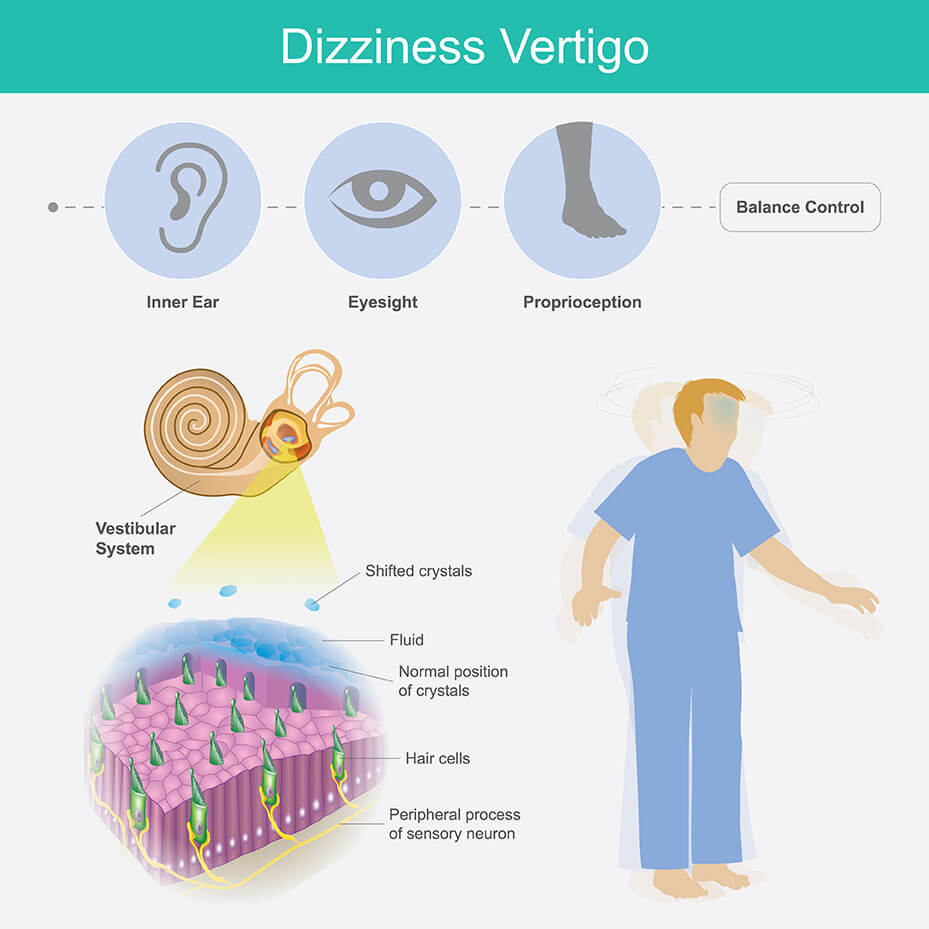Vestibular Physiotherapy
The vestibular system is a small sensory organ which sits in the middle ear. It is responsible for detecting movements of the body and our position in space. When movements are detected by the vestibular system, nerve impulses are sent to the brain and small adjustments are made in our eye movements and posture in response to allow us to maintain a sense of equilibrium.
Vertigo
The term vertigo refers to the sensation of the world moving or “spinning” and is commonly triggered by sudden head or body movements like looking down or lying down in bed. Vertigo can be caused by a dysfunction in the vestibular system.


Causes of vertigo:
Benign Paroxysmal Positional Vertigo (BPPV)
BPPV is the most common cause of vertigo, particularly in people over the age of 65. It occurs when crystal particles become dislodged within the vestibular system, causing a change in the signals going to the brain and eyes. People with BPPV experience a sudden onset of vertigo with quick head movements like lying down in bed or rolling over. Symptoms usually last for less than 30 seconds and can be accompanied by nausea and vomiting. While BPPV is not a serious condition, it can be an extremely debilitating condition and is a leading cause of falls in the elderly population. BPPV is easily treated by a physiotherapist and involves a series of maneuvers to move the crystals back into position.
Vestibular neuritis
Vestibular neuritis is a disorder of the inner ear resulting in inflammation of the nerve which carries information from the vestibular system to the brain, often after a viral infection.
Meniere’s disease
Meniere’s disease is a chronic disorder of the inner ear characterised by vertigo, hearing loss and ringing in the ears. It is caused by an increase in fluid within the vestibular system.
Migraine
Vestibular migraine is a type of migraine that causes vertigo symptoms with or without pain. It can be accompanied by visual sensitivity, impaired balance, nausea and vomiting.
